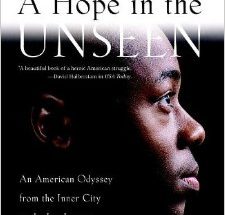 New York Times reporter Nina Bernstein chronicled the contentious 26-year case of a troubled foster care child, Shirley Wilder, in her in-depth book, The Lost Children of Wilder: The Epic Struggle to Change Foster Care.
New York Times reporter Nina Bernstein chronicled the contentious 26-year case of a troubled foster care child, Shirley Wilder, in her in-depth book, The Lost Children of Wilder: The Epic Struggle to Change Foster Care.
Wilder’s case may have done the young Shirley little good, but it helped change the course of foster care history in the city.
Shirley’s mother died when she was 4-years-old. So she and her younger sister, Virgie, moved in with their grandmother. Seven years later their grandmother died, leaving the girls scrambling to find a new home. Their biological father, who had not been able to care for the girls after their mother’s death, agreed to take Virgie back, but not Shirley.
Shirley was shuffled between one relative’s house to another while the state searched for a “suitable” placement for her. She was put in facilities that housed children who were either emotionally disturbed or juvenile delinquents.
Shirley had to fight to survive in the New York State institutions. She was continually raped and abused by other girls and boys. If she fought back, she would be punished with isolation or transferred to a new facility. If she didn’t fight back, she would continue to be abused by other kids, for whom abuse and violence had become normal. Most of the facilities to which Shirley was sent were poorly rated and uninhabitable, but due to money and politics, they continued to exist.
Finally, after reaching her boiling point, Shirley began a pattern of running away–from the facilities, from various foster home placements. Often, she would end up in the home of her father, someone she hoped would one day want her back. He never did.
Eventually, at age 14, Shirley gave birth to a baby boy she named Lamont. None of her relatives was willing to take care of Lamont. Shirley, who still in the foster-care system, was not allowed to care for him herself. So, she allowed the state to take her son. She thought it was a temporary arrangement. She never got him back. Nor did she ever find a permanent home for herself at any facility.
The book then turns to the life of Lamont, who seemed to adjust very well to his first foster family. When the couple developed marital problems, he was sent away to another foster family. Just like his mother, Lamont was highly intelligent and always knew the right thing to say and do. But the bouncing around from foster home to foster home — some of which were abusive — took its toll. Just like his mother, he began to experience behavioral and psychological problems.
At a low point in his life, Lamont started to ask about his biological parents. He eventually reunited with his mother and father, separately. Both were addicted to drugs and living in miserable situations. Lamont fought the urge to distance himself from people he thought weren’t going to help change his life. He questioned whether the situation he grew up in was a better alternative than growing up surrounded by his biological family.
Lamont eventually discovered that his girlfriend, Lakisha Reynolds (Kisha), was pregnant with their child. Still in the foster-care system himself, Lamont refused to let his child go through what he went through. He tried everything he could to make sure his son, Sheemie, had the family he always wanted.
During that period, Mayor Rudolph Giuliani instituted new welfare restrictions that made it harder to get food stamps. Sheemie suffered as a result, from lack of nutrition.
Around this time, Shirley had been serving time at a prison on Rikers Island for drug related charges, and simultaneously undergoing cervical cancer treatment. Shortly after being released, she found out she had AIDS. She died of AIDS in 1999. Shirley was 39 years old.
The class action lawyer, Marcia Lowry, never felt satisfied that she brought justice to Shirley and other foster care children like her. Even after the Wilder case was settled and amended and settled again, things systemwide still hadn’t changed much. In 1999, the same day Shirley passed away, a new lawsuit against Giuliani’s welfare policies was brought to court. The lawsuit was titled Lakisha Reynolds v. Giuliani. Sheemie Wilder was the lead plaintiff in this case. In the end, the judge ruled that the stringent welfare practices “endangered needy children.”




This was meant for another site that had mentioned Shirley sorry.